The Rise of nationalism in Europe
The Rise of Nationalism in Europe is the chapter from Social Science covers the syllabus of class 10 giving the idea of nationalism in different parts of Europe.

Fredric Sorrieu
- French artist who painted his visual dream of world called it DEMOCRATIC AND REPUBLIC first print shows that the of people Europe and America of all ages and and social classes marching in the long train offering their homage to the STATUE OF LIBERTY. The statue is having the torch of enlighten in right hand the CHATER OF THE RIGHT OF MAN in the left hand.
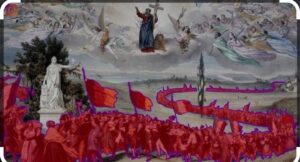
- On the earth in the foreground of the image lie the shattered remans of symbol of absolutist intuitions. Old system would die soon.
- Sorrieu’s utopian vision of the nation are grouped as distinct nation identified through flags, nation costume.
He believed in future nations peacefully co-exist and governed by democratic Principles.-
The French revolution and idea of Nationalism
Deleted Deleteda) Spirit of nationalism came from French Revolution 1789 full-fledged monarchial state but the political and constitutional changes transfer of sovereignty from monarchy to the body of citizens whose people constitute the Nation and the destiny of the country. b) The idea of fatherland (la Patrie) and the citizens shows united community with equal rights, new tricolor French flag to replaces the royal standard the Estates General was elected by the people renamed as National Assembly.
c) Centralized administrative system was adopted such as internal custom duties and dues were abolished uniform weight and measure were taken
d) French language was made compulsory regional language was discouraged. It became the motive of French to liberate the people of Europe from despotism. ,
e) Hearing this middle-class people began to set up Jacobin Clubs.
Deleted: The revolutionary wars started as the French army moved into Holland. , Belgium , Switzerland , and some part of Italy with the idea of nationalism. They were welcomed where ever they went. Napolean made many administrative reforms but by setting monarchy he destroyed democracy in France
Napolean code also called Civil Code 1804 in which a) Privilege on the basis of birth was abolished
b) Equality before law
c) Right to property
d) abolished feudal system
e) Freed peasants from serfdom and manorial dues
f) Improved transportation and communication system
g) Businessman and small-scale producers realize uniform law, standardized weights and measure with common national currency which help the movement and exchange of goods and capital easier.
Napoleon could get success because his administrative system did not went hand in hand with political freedom by increasing taxation, censorship, forced conscription into French army to conquer rest of Europe.
Making of Nationalism in Europe
In the mid 18 century Europe did not have any states. East and central Europe were under monarchy in which people with different diversities such different languages, ethnic group lived.
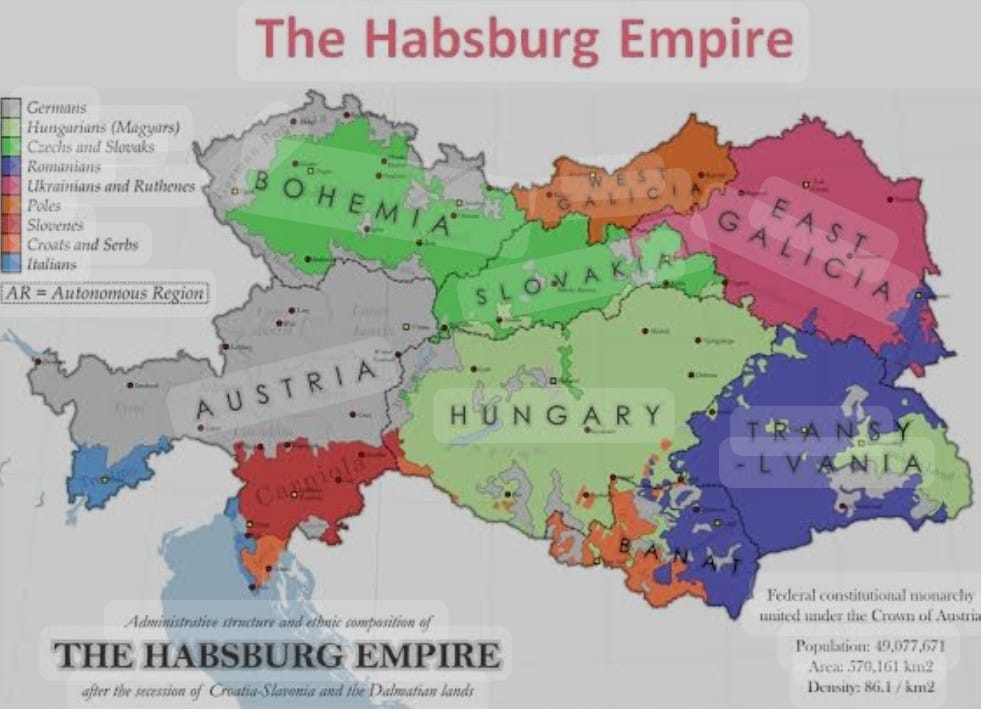
The Habsburg Empire ruled Austria and Hungary which was having different regions such as Alpine, the Tyrol, Austria, Sudetenland Bohemia, were the German speaking, Lombardy in Italian speaking in Hungary some spoke Magyar, and some spog such asmake other languages. In Galicia people spoke polish.
Aristocracy and Middle Class
There was sociopolitical and landed aristocracy and their member were united due to same life they had lot of money and lands used French their diplomatic language of high society social bonding such as marriage were took place within them.
Majority of the population were peasant, tenants, small farm owners. Eastern and Central Europe had large land estates cultivated by serf poor, people.
In western Europe industrial growth give birth to middle-class dependent on market. due to industrialization in England (second half of18 century),
France Germany (19 century) emerges the working-class middle-class industrialist and professional in this educated liberal middle class the idea of national unity emerged.
Liberal Nationalism
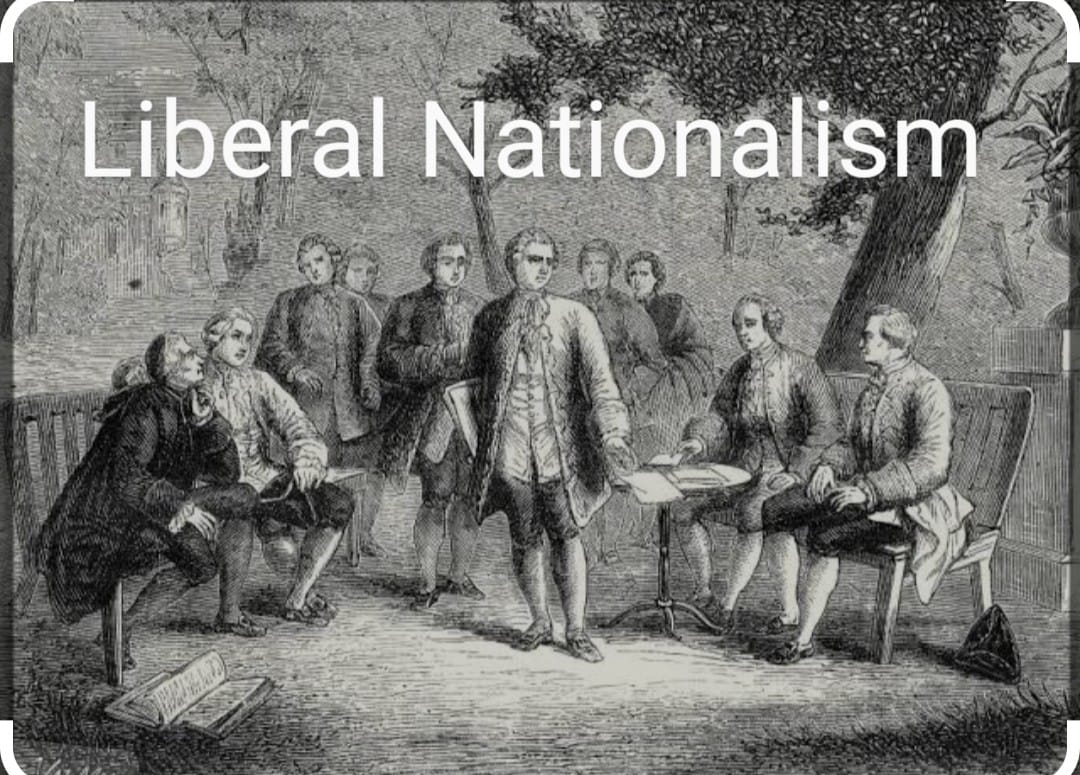
Liberalism for the middle class was freedom for person and equability before law and full respect to be given to private property.
They did not mean for universal suffrage (right to vote). Men without property and all women were excluded from voting which was backed by Napolean Code but in 20th century they organized the opposition movement for equal political rights.
In Economic Sphere liberals wanted freedom of market and removal of restrictions between states so the exchange of goods and capital may be made easier.
In 1834 a custom union was formed at the imitative of Prussia later joined by German States the union abolished the tariff barrier reduced currency from 30 to 2 the creation of railways stimulated mobility and economic interest to national unifications
During Napoleon there were39 states possessed their own currency and method of measurements and weights merchants selling goods from one place to another one had to cross 11 custom duties barriers paying 5% in each case and had to face different methods of measurement and weights
New Conservatism after 1815
After the death of Napoleon institutions strong like monarchy the state will become more effective and efficient bureaucracy, dynamic economy, abolition of feudalism and serfdom.
In1815 Britain, Russia Prussia, and Austria defeated Napoleon and the Congress met in Vienna under host of Austrian Chancellor Duke Metternich with the object of the changes that had taken place in Europe during Napoleon wars
. a) The Bourbon Dynasty restored the power which was lost during French revolution
b) The boundaries of France were set up to prevent the future expansion
c) The kingdom of Netherland and Belgium was set up in the north.
d)Genoa was added to Piedmont the south, Prussia was given important parts of west and Saxony, Austria was given the control of north Italy
e) Russia was given part of Poland.
f) 39 confederation states of German set up by Napoleon remain untouched.
The aim was to create conservative order in Europe therefore imposed the censorship laws to control in newspaper, books, plays, songs, all those activity which reflected the idea of freedom and Liberty.
Revolutionaries
After 1815 many of revolutionaries went underground because of liberal nationalist feeling many secret societies sprang up to prepare the revolutionaries and spread their ideas with opposing the monarchal form which was established after Vienna Congress, fight for liberty and freedom.
Giuseppe Mazzini
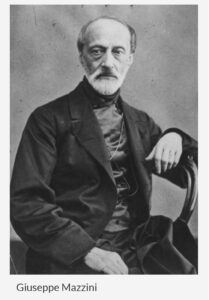
Born in Genoa in 1807 became the member of secret society of Carbonari at the age of 24 he was exiled in 1831 for attempting the revaluation in Liguria. He founded two secret society
a) Young Italy in Marseilles
b) Young Europe in Berne the members were from Poland, France ,Italy and German stated.
He believed that God had intended nations to be natural units of mankind. Great worry for conservatives therefore
Duke Metternich said about him THE MOST DANGEROUS ENEMY OF OUR SOCIAL ORDER
The Age OF Revolution 1830–1848
Conservative regime tried to consolidate their powers but laberism and nationalism was help of increasing, which was associated with educated middle-class , clerks, commercial middle classes. and teachers.
The first incident took place in France in July 1830 where the Bourbon kings who restored the power with the with help of Louis Philippe was overthrown by liberal revolutionaries. This revolution sparked in Brussels that Belgium separated from United Kingdom of Netherland
The Nationalist feeling reached to Greek;
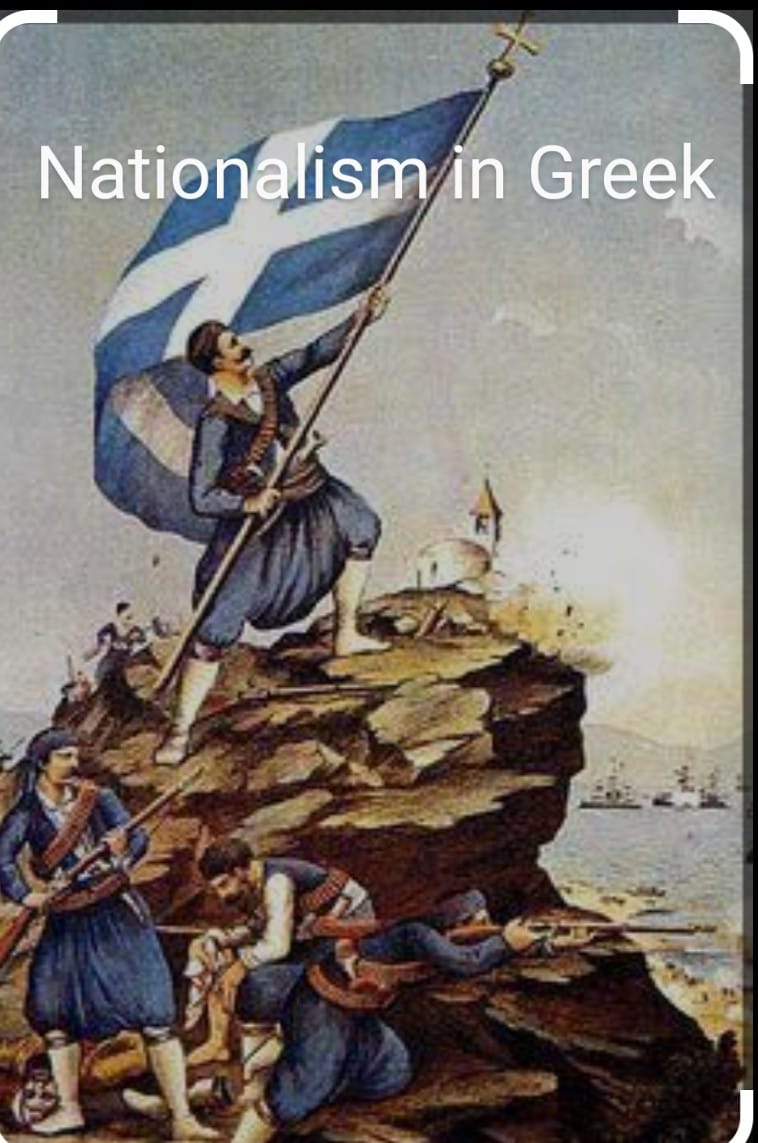
war of independence started there. Since 15 century there was Ottoman Empire the struggled began in 1821. the nationalists were supported by Greek living in exile and many western Europeans who had soft corner for Greek culture. Poets and Artist consider Greek the cradle of European. culture so they tried to change the public opinion to support against Muslim. the great poet Lord Byron who organized the funds went for war but died due to high fever in 1824.Finally in183 by the Treaty of Constantinople Greece became independent state
Role of Romanticism in Revolution
Culture, art, poetry, stories and music played an important role in creating the nationalist feeling. the German philosopher Johann Gottfried Herder (1744 1803) said that German Culture lies in folk songs, folk poetry and folk dances.
Karol Kurpinski the polish created national feelings through folk dance polonaise and mazurka. Language played important role when Russian occupied Poland and banned polish language in school only Russian language were to be taught in1831 than many of clergy men were sent to jail or Siberia as punishment for refusing to preach in Russian.
Hunger Hardship and Revolt
In 1830 the population of Europe in increased in large extent which created the problem of employment and living, due to lack of facilities cities were overcrowded people forced to live in slum, small producers have ti face stiff competition due to cheap import from England . Price rise and bad harvest added their problem.
In1848 due to food shortage and unemployment people in Paris came on roads such that Louis Philippe had to run away. National Assembly declared adult suffrage above age of 21. and guaranteed the right to work.
In early1845 weavers in SILESIA had to revolt against contractor who supplied them raw material for producing finished textile, but they refused to take and did not make any payment than on 2 June large crowd came out on the roads marched to contractor group of people forcefully entered the house broken everything in the house and plundered the contractor with his family ran away to nearby village later on caught and shot died.
Frankfurt Parliament And German unification
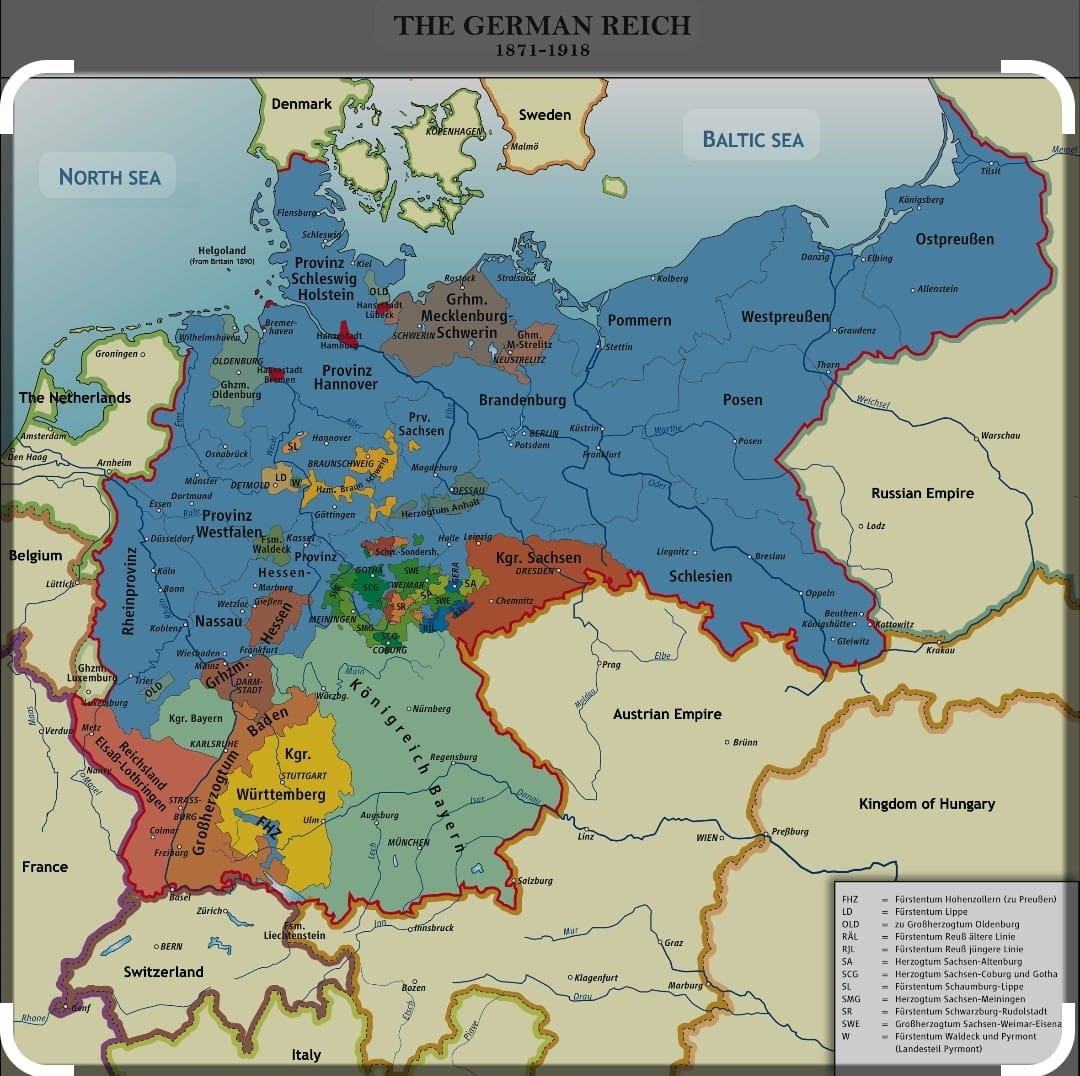
The unrest in men and women of the liberal middle, demanded a on nation state on parliamentary form having constitutions freedom of press and association.In German large number of political associations comprising of middle-class professional. businessmen and others came on roads of Frankfurt to vote for GERNAL NATIONAL ASSEMBLY on 18th May 1848
831 members collected in ,St Paul they drafted the constitution for German on these terms they offered the crown to Friedrich Wilhelm IV the king of Prussia, but he rejected the proposal and joined the group of other opposing monarchs.
The opposition was stronger, so they repress the movement by military and others support The issue of rights of women was controversial but women actively played the role from years by participating in movement they established their own association founded newspapers, demonstrations etc.
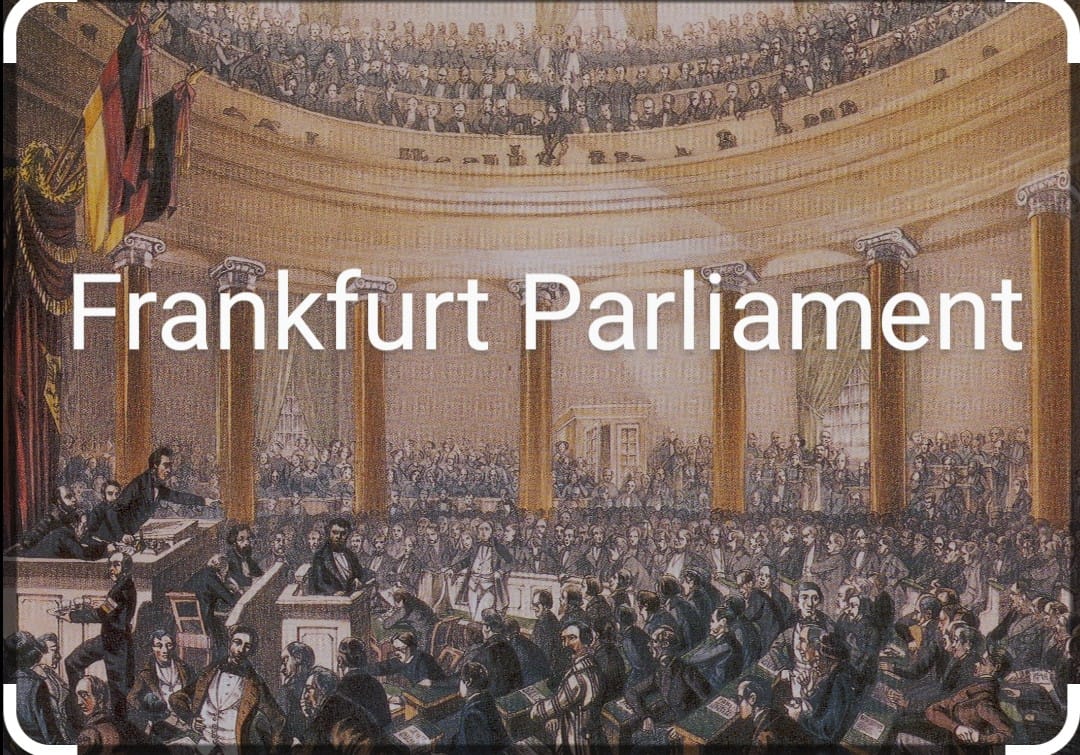
When parliament convey in the church St. Paul women were also allowed only to observe. at this incident monarch understood the importance of liberal nationals and introduced many changes this resulted that Habsburg gave more autonomy to Hungarians in 1867.
After the Frankfurt parliamentary incident at St. Paul Prussia took the leadership of the movement its Chief minster Otto Von Bismarck was given the charge.
He with the help of Prussian army and bureaucracy fought 3wars in 7 years with Austria, France and Denmark finally won In January 1871 the king of Prussia William I became German emperor ceremony to place in Versailles in the presence of the German princes of the states, representative of army., important Prussian ministers.
Unification Italy
In the mid of 19th century Italy was divided into 7 states
a) Sardinia Piedmont was ruled by Italian princes
b) North was under Austrian Habsburgs
c) Centre was under Pope
d) South was under the Bourbon King of Spain.
There was no common language.
In 1830 Giuseppe Mazzini wanted to unify Italy formed Young Italy secret society but could not get success failed in 1831 and 1848 than mantle fell on the King Victor Emmanuel II to unify the chief minister CAVOUR took responsibility like wealthy educated members he could not speak Italian well but good in French by his diplomatic tricks the defeated Austrian 1859.
Under Giuseppe Garibaldi large volunteer’s army was collected than in1860. marched towards the south Italy and The Kingdom of Two Sicilies and won the support of peasants
In1861 Victor Emmanuel II became the king of unified Italy.
Most of the people were illiterate who supported Garibaldi when they heard word Italia they thought the name of queen.
Unification of Britain
There was no British nation in 18th century. The primary identities of people who lived in British ilse were Welsh Scot Irish having their own culture and political traditions
When English became wealthier important and powerful, extended their influence over other islands by the Act of Union (1707) between England Scotland resulted in United Kingdom of Great Britain by which England was able to impose influence on Scotland.
The Scottish Highlanders were not allowed to speak their Gaelic Language and wear national dress and large number were forcefully driven out from their homeland.
Ireland faced the same fate the English helped the Protestants of Ireland to establish the dominance over Catholics they revolted against the Britishers led by Wolfe Tone and his United Irishmen in1798 and new British nation was formed Union Jack as British Flag God Save Our Noble King as national anthem English language was promoted.
The Balkan state
-
It consists of Romania Bulgaria Albania Greece Macedonia Slovenia Serbia etc. they were collectively known as Slavs. they were under Ottoman Empire made all the region explosive due to nationalist and liberal feeling.
The Ottoman tried to increase his power but failed one by one adjoining states started declaring themselves independent.
The Slavic nationalities struggled for their identity and independence. the small states were the rival of each other so Russia England Germany to overpower them to extend their aera this was internal cause of I st world war so they went to disaster. anti imperial movement was everywhere so people developed their own idea of nationalism.
Visualizing the Nation
Nations portrayed as female figure Allegory of the nation. During French revolution the female allegory was Liberty Justice and Republic.
Red cap or broken chain represent Liberty Justice as blindfolded woman carrying a pair of weighing scale. In France she was Christened Marianne a popular Christan name.
The statue of Marianne was erected in public square to remind the unity of nation Marianne images are marked on coins and stamps. Germania became the allegory of the Germany wear the crown of oak leaves stands of heroism.
Read More : Nationalism in India
Follow us on: Facebook
| Unchanged | Unchanged: |